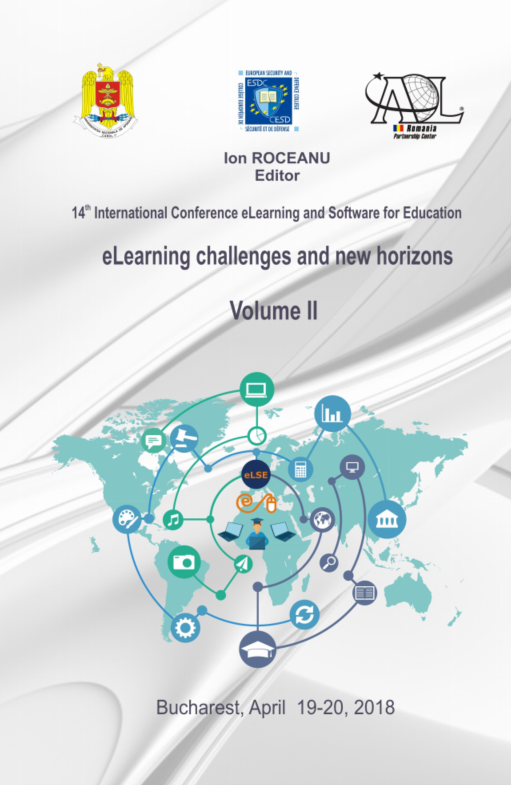A Proposed System Architecture for ESP Classes for Accelerated e-Learning
A Proposed System Architecture for ESP Classes for Accelerated e-Learning
Author(s): Irina BocianuSubject(s): Social Sciences, Education
Published by: Carol I National Defence University Publishing House
Keywords: Software; ESP; revision; evaluation; accelerated learning;
Summary/Abstract: The highly technologized present society allows students to easily access information and develop skills much easier than in the traditional education system. Besides using technology for teaching and evaluating purposes, it can also be converted in a means of self-assessment to evaluate students' personal progress. Thus, knowledge terminology appropriation can also be technology mediated with the purpose to review the already studied terminology in view of the final examination facilitated by accelerated learning strategies consisting of condensed exercises designed to review specific terminology in the fields of humanities and sciences. For the beginning, the software would be available for the students from the University of Bucharest whose study is oriented towards specialised English terminology. With this purpose in mind, the present paper proposes a system architecture designed with a simple interface to facilitate students' access to information. The platform interface should be simple and easy to use. Also, a mobile version would be desirable to design so that it become accessible from any device. The exercises proposed follow each unit studied during the semester with a strong focus on terminology and vary in range and form, all in reference to the unit studied at the seminar. When applying these learning strategies, the challenges are represented by the limited period of time necessary to complete each task - the newness of the platform is that the exercises are timed so that they simulate real-life exam situations, thus making the eLearning process more effective and efficient. The software will also indicate a progress bar and the mistaken answers will come with explanations. An important aspect worth mentioning is the fact that these exercises do not focus on building competition among students, therefore no forum or chat rooms will be designed. As a result, students develop learning skills, become more confident in their language appropriation and acquisition due to the real-life simulations and practice IT skills. The limited period of time for answers stimulates students to appropriate learning strategies by accelerating the process.
Journal: Conference proceedings of »eLearning and Software for Education« (eLSE)
- Issue Year: 14/2018
- Issue No: 02
- Page Range: 425-428
- Page Count: 4
- Language: English

